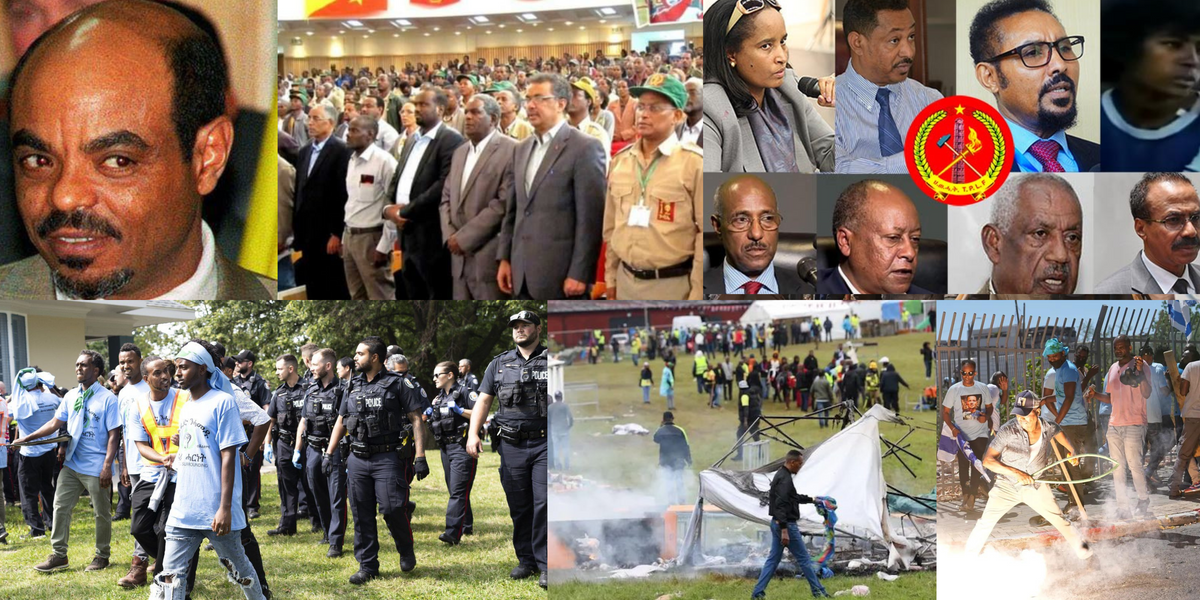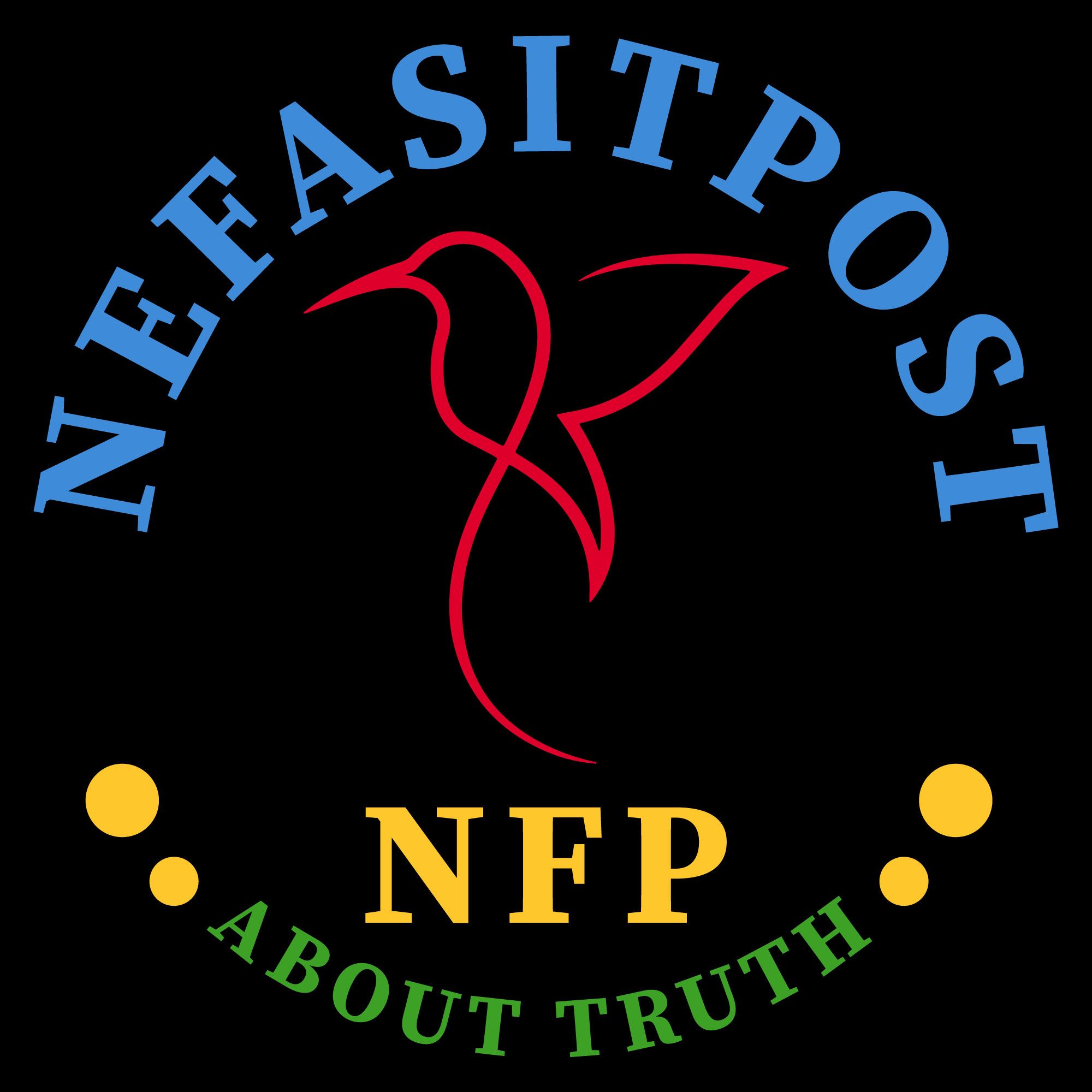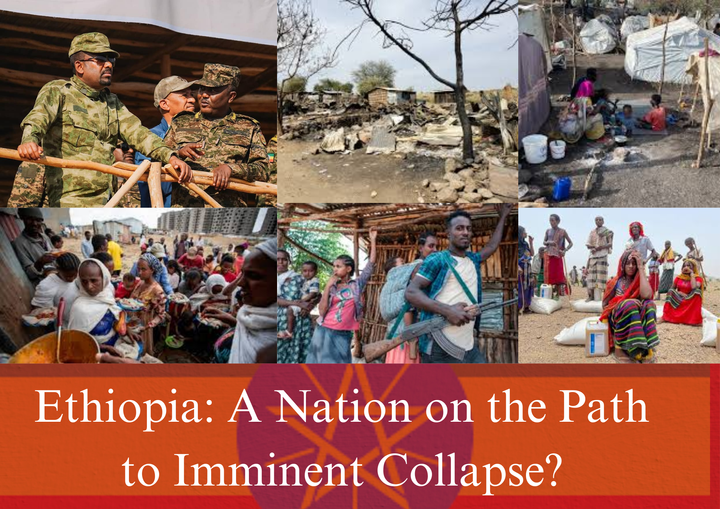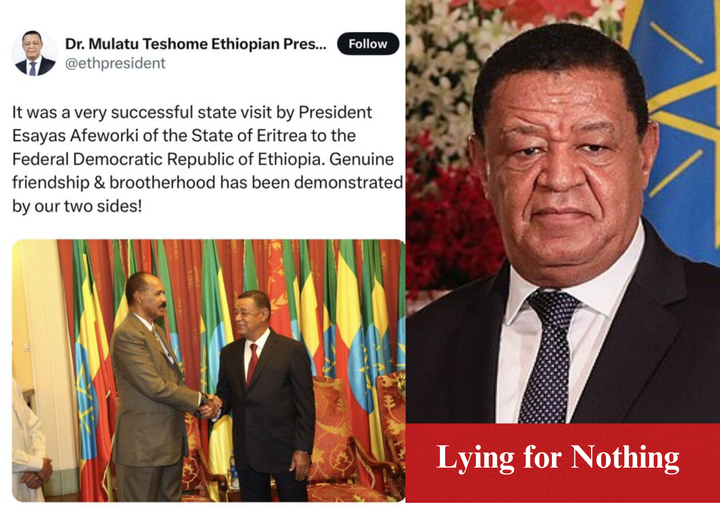Exploring Collective Narcissism and Its Influence on the Violent TPLF Diaspora: A Comprehensive Examination
Over thirty years of relentless propaganda fueled by the TPLF has cultivated hate toward Eritrean identity, posing risks that must be addressed. The TPLF's agenda aimed to erase Eritrea's cultural and historical heritage, distorting reality through collective narcissism.

Amanuel Biedemariam
For over thirty years, the pent-up hate toward Eritrean identity has festered and grown, fueled by the relentless propaganda machine of the TPLF (Tigray People's Liberation Front). This hate campaign has been disseminated through various channels, including television, radio, and social media platforms, saturating the minds of the Tigrayan people with a toxic narrative aimed at demonizing Eritrea for decades.
The TPLF's agenda was not merely to vilify Eritrea; their sinister intent went further. They sought to eradicate Eritrea as a nation and erase any trace of its cultural and historical heritage. To achieve this, they deliberately distort Eritrean history, culture, arts, music, and the legacy of the Eritrean struggle for independence. The TPLF's ultimate goal was to subjugate Eritrea and absorb it into Tigray, effectively erasing its independent identity.
Their subversive efforts extended beyond the borders of Tigray, as they conspired with various parties, including Western actors, to undermine Eritrean identity on the global stage.
How Did the TPLF Maniipulate Tegaru?
The TPLF utilized sophisticated tactics to manipulate and brainwash the people of Tigray, devising a cunning strategy to maintain their grip on power. The TPLF weaponized ethnic nationalism using three tactics.
One: The most insidious tactic was to instill fear in the Tigrayan population by convincing them they were constantly surrounded by enemies, including the Amharas, Afar, and Eritreans.
Two: They painted a bleak picture of imminent danger and positioned the TPLF as the sole protectors and saviors of the Tigrayan people. This fear-based narrative ensured unwavering loyalty to the TPLF and created a sense of dependency on their leadership.
Three: The TPLF propagated a false sense of superiority among the Tigrayan population to empower the people. They inflated the self-worth of their followers, fostering a society with pronounced tendencies of social narcissism. This sense of superiority was not based on reality but was carefully crafted to maintain control and manipulate the masses.
This weaponization of ethnicity is best described by (Esman 1994: 28), “In relation to ethno-nationalist movements, ethnic mobilization can be defined as ‘the process by which an ethnic community becomes politicized on behalf of its collective interest and aspirations, ” is the relentless campaign of hate and manipulation orchestrated by the TPLF not only distorted reality but also had far-reaching consequences, including cultivating a society marked by tendencies of social narcissism. To understand the full scope of this impact, let's delve deeper into what social narcissism means in relation to the TPLF's agenda.
Unmasking the TPLF's Agenda: The Impact of Collective Narcissism
Collective narcissism is a psychological concept involving an inflated and unrealistic belief in a particular group's greatness, superiority, or significance, akin to individual narcissism but applied at a collective level. Individuals displaying collective narcissism tend to magnify their group's accomplishments, historical achievements, and distinctive qualities while often disparaging or diminishing other groups. Here are some key characteristics and aspects of collective narcissism:
Exaggerated Belief in Group Superiority: Collective narcissists firmly believe that their group is extraordinary, unparalleled, or superior to others in various aspects, be it culture, history, values, or achievements. In the case of the TPLF, they view Eritrea as inferior, dismiss the Amhara identity, claim sole ownership over the creation of Ethiopia, deny Eritrea's existence, and appropriate Eritrean artists' work as their own.
Seeking Constant Validation: Like individual narcissists who crave admiration and validation, collective narcissists seek external affirmation for their group's supposed superiority. They react defensively or with hostility when their beliefs are challenged. An example of this can be seen in the TPLF's promotion of narratives surrounding the Tigray genocide, which they aggressively marketed to their Western allies, seeking validation and support for their claims. This relentless pursuit of validation led to prolonged, intense activism and advocacy.

Collective narcissism involves several key traits and behaviors:
Firstly, those with collective narcissistic tendencies are highly sensitive to perceived threats to their group's identity or status, which can trigger strong reactions such as responding vehemently to criticism, perceived insults, or challenges to their group's beliefs.
Secondly, collective narcissism can manifest as ingroup bias, leading individuals to strongly favor members of their own group while exhibiting a tendency to discriminate against or devalue members of other groups.
Thirdly, individuals with collective narcissism tend to engage in selective attention and information processing. They often focus on information confirming their group's perceived superiority while dismissing or ignoring information contradicting it.
Fourth, a vital element of group conformity within collective narcissistic groups exists. The TPLF members are constantly pressured to conform to the group's beliefs and attitudes, even if they personally harbor doubts or reservations. These traits collectively contribute to the complex dynamics of collective narcissism within group settings.
Reference: “Collective Narcissism: Antecedents and Consequences of Exaggerated In-group Positivity" by Agnieszka Golec de Zavala, Aleksandra Cichocka, and Roy Eidelson
Narcissism and Violence Against Eritrean Festivals: One of the most insidious and destructive aspects of collective narcissism is the potential for collective aggression. In its most extreme forms, collective narcissism can fuel aggressive or hostile behaviors directed towards outgroups, often manifesting as prejudice, discrimination, and, in the most alarming cases, acts of violence, as we have seen during the Eritrean Festivals around in Western nations and Isreal.
When collective narcissism takes root within a group, it fosters a profound sense of entitlement and superiority, which can make the members of that group more inclined to view other groups as inferior or as threats to their own standing. This heightened sense of group identity and self-importance can pave the way for the dehumanization and vilification of others, leading to acts of aggression.
We have witnessed how the TPLF members fail to comprehend the risks they pose to mothers, children, and the elderly. They firmly believe that these families are government supporters, leading them to disregard the people's fundamental right to peaceful assembly, a tradition upheld for decades.
In the context of the TPLF's aggression towards Eritrea, their collective narcissism was particularly evident in their attacks on Eritrean festivals and cultural events. These attacks were not merely isolated incidents but were indicative of a larger pattern of hostility driven by their belief in the superiority of Tigray over Eritrea. By targeting Eritrean festivals, they aimed to undermine Eritrean cultural identity and suppress any celebration of Eritrean heritage.
Therefore, if Eritreans do not grasp the notion of collective narcissism, it's akin to overlooking a potentially explosive situation. The TPLF firmly believes that Eritreans are the obstacle standing in their path, viewing Eritrea as an impediment to their pursuit of power. Consequently, given the inherent tendencies of narcissism, they may resort to violence against us without hesitation. It is, therefore, of utmost importance that we identify and confront it to safeguard the safety and welfare of Eritreans.
Locked in Intransigence: The TPLF Diaspora's Unwillingness and Inability to Reason
The challenge posed by the TPLF diaspora, influenced by collective narcissism and marked by extreme behavior, is deeply rooted in their fundamental inability to engage in reasoned dialogue or negotiations. This intransigence results from several key factors that contribute to their unyielding stance.
Moreover, collective narcissism hinders the capacity for autonomous thought due to the effectiveness of group conditioning and the reinforcing echo chambers of TPLF's narratives. Additionally, we should consider the fear of isolation and the limited exposure to diverse educational perspectives as contributing factors. It becomes exceedingly challenging to envision TPLF supporters liberating themselves from the group's mindset and embracing independent thinking, which necessitates the practice of critical thinking and a readiness to challenge deeply ingrained convictions.
An inflated sense of victimhood further amplifies this distorted reality. Paradoxically, groups driven by collective narcissism, much like the TPLF, tend to magnify their own sense of being wronged. The TPLF, for instance, consistently views itself as a victim of injustices, even when its own actions have played the primary role in conflicts or disputes. This heightened victim mentality makes it exceedingly challenging to engage in productive dialogue since it is often used to rationalize aggressive or confrontational behavior.
Given these characteristics, engaging in rational discourse or negotiation with the TPLF diaspora can be daunting and often unproductive. Their reluctance to empathize with others acknowledge their wrongdoing, and their inclination to exaggerate their grievances can create substantial barriers to meaningful communication and conflict resolution.
The TPLF's Emotional Rollercoaster: Grief, Denial, and Rage
The TPLF is entangled in a web of emotions marked by grief, denial, and rage. What makes this situation even more intricate is the apparent progression through the stages of grief, with a particularly pronounced emphasis on denial, coupled with simultaneous displays of intense anger and aggression directed towards Eritreans worldwide. This dual emotional dynamic places Eritreans in a precarious position, underscoring the volatility of the TPLF's response to what they perceive as their grievances.
Denial, a recognized stage of grief, typically involves a reluctance to accept the harsh reality of a situation, often serving as a psychological defense mechanism against overwhelming emotions. The TPLF, mired in denial, hesitates to acknowledge the substantial loss of power, influence, and control in the region. They deny the significant toll of the conflict, which includes the loss of over a million lives, mass displacement of the population, forfeiture of annexed territories, and a complete erosion of their authority. It starkly contrasts their earlier belief that they were destined to triumph in wars they had meticulously planned for decades, including their aspiration to march into Asmara at will. Instead, the entire region of Tigray fell under control swiftly, a reality bound to stoke their anger.
Concurrently, their outbursts of rage and aggressive behavior toward Eritreans globally manifest their profound anger and frustration. This anger is rooted in their perceived grievances and desire to reclaim their former dominant position in the region. These intense emotions have propelled the TPLF toward hostile actions, contributing to a dangerous and unpredictable environment.
The combination of denial and anger within the TPLF creates a volatile mixture. On the one hand, their denial impedes them from engaging in constructive dialogue or pursuing peaceful conflict resolutions. On the other hand, their anger can lead to impulsive and harmful actions against perceived adversaries, including Eritreans.
Empowering Eritreans Amidst Complex Challenges
For Eritreans residing inside and outside the region, navigating the intricate dual dynamics posed by the TPLF carries significant risks to their safety and well-being. They may find themselves ensnared in the turmoil caused by the TPLF's stubborn denial and anger-driven aggression. This underscores the critical need for international attention and intervention.
Understanding and addressing the underlying causes of the TPLF's behavior is imperative to mitigate the potential perils arising from these complex dynamics. Eritreans should recognize the paramount importance of dealing with the TPLF's actions strategically and calculatedly. Engaging with the TPLF, particularly in a confrontational or adversarial manner, is a waste of time.
Eritreans must refrain from inadvertently stoking the TPLF's anger. As previously discussed, the TPLF exhibits traits of collective narcissism, often resulting in intense anger and aggression. Direct engagement, especially confrontational, may only escalate their anger and reinforce their belief in their superiority. It can further validate their victimhood or underdog status narrative, thus justifying their hostile actions.
To maintain the moral high ground, Eritreans should choose not to engage with the TPLF and respond to anger with patience and restraint, aligning with the government of Eritrea's no-contact or communication approach. Eritreans can draw inspiration from the government's focused development efforts, patiently persevering until circumstances dictate a favorable outcome.
Additionally, Eritreans can direct their energies toward constructive initiatives rather than direct conflict or reacting to provocations. They can effect positive change by actively promoting Eritrean culture and heritage, advocating for their rights peacefully, and positively contributing to their communities at home and abroad.
Furthermore, Eritreans can leverage international support by building alliances and partnerships. Over the past two years, Eritrea's global standing has increased, gaining recognition and support from the international community. By emphasizing their commitment to peaceful coexistence and cooperation, Eritreans can forge stronger relationships with countries and organizations interested in regional stability, thereby garnering increased support from the international arena.
Eritreans demonstrate unwavering resolve and fearlessness, exemplified by their ability to respond resolutely to any actions taken by the TPLF. They have not only successfully celebrated their festivities but have also been brought closer together due to the threats to their way of life and the safety of their children. As a result, they are compelled to defend their community vigorously.
The hope is that this article serves as an enlightening roadmap to understand the complex state of the TPLF's existence.
This article is dedicated to Solo Media and the many supporters who have subscribed to show their support for the Nefasitpost.com newsletter.
Thank You
Contact us aman@nefasit.com



Comments ()